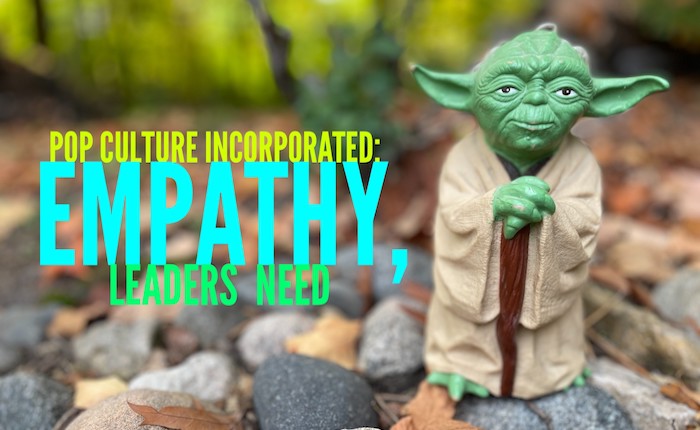Scroll through LinkedIn or flip open any business magazine and it seems like the corporate world collectively just discovered a brand-new concept: Empathy.
And it’s no wonder: If ever there was a time for leaders to flex their emotional-intelligence muscles and try to understand what their colleagues, customers and communities are going through, it’s now.
People are struggling with pandemic fears, questioning what’s important and navigating uncertainty all day long in all aspects of their lives, including – and for some people, especially – at work. And as leaders, we need to be tuned into what they’re feeling.
I talked with PR Daily this summer about how empathy is a super power for communicators that drives and supports everything from corporate culture to client work. In fact, a new survey from Catalyst found that empathy is, in fact, the most important leadership skill. When their leaders were empathetic, survey respondents reported being more respected, valued, innovative, engaged and able to navigate work-life balance.
The good news is we’ve been exposed to empathy on TV and in movies for decades, whether we noticed or not. Examples of empathetic characters in pop culture abound, especially in science fiction: Deanna Troi from Star Trek: The Next Generation came from a whole planet of empaths, and could sense that a random Andorian was starting to get frustrated with the service at his neighborhood space-restaurant while she stood on the deck of the Enterprise. Lorne, the emerald-skinned and sassy demon from Angel, could read people’s auras – mostly when they sang karaoke in his club. And Jedi Master Yoda from Star Wars was so tuned in to the Force, he could sense and connect with anyone, even in a galaxy far, far away.
But while it’s a convenient plot device, empathy is hardly an alien concept.
Often portrayed as a “soft skill,” empathy is anything but. Being able to put yourself in someone else’s shoes to understand their perspective has always been critical to leaders’ ability to lead.
We may not be able to sense people’s emotions by going into a Force-induced trance, but we can all stretch our empathetic muscles by listening more, reserving judgment, using our imagination to appreciate what people may be going through and working to understand how our customers and clients are impacted by our product or service.
Especially during the pandemic and as we hopefully begin to move into a post-crisis reality, practicing empathy isn’t optional. It’s vital — even more important than making the Kessel run in less than 12 parsecs. We must boldly go where many great leaders have gone before. Our teams and our businesses depend on it.
In the immortal words of a certain lightsaber-wielding Muppet, “Do or do not. There is no try.”
You don’t need to be empathetic to understand that.

